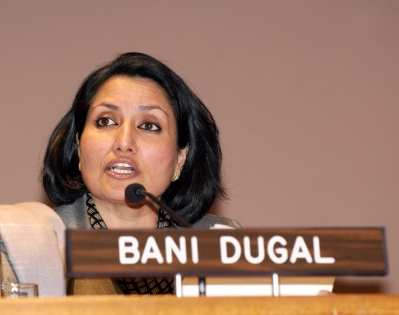December 26-2014

The Baha’i community says some cities have been forcibly closing shops operated by Baha’i members while the Friday prayers leader in Rafsanjan has called for all Baha’is to be kicked out of the city because they are “unclean” like dogs and one of the country’s most senior clerics proclaimed that Baha’is have no rights of citizenship in Iran.
Some time ago, Supreme Leader Ali Khamenehi described Baha’is as “najes,” a Qoranic term that refers to such untouchable things as pigs, dogs and excrement, but which has increasingly been used by Shiite clerics to refer to Baha’is.
According to the Baha’i World News Service, 79 businesses operated by Baha’is in Rafsanjan, Kerman and Jiroft—all cities in Kerman province—were shut down and sealed by the authorities in November. It said another eight Baha’i businesses in other provinces were also closed that month.
Against the backdrop of increasing economic pressure, an anti-Baha’i demonstration was held in Rafsanjan.
Hojatoleslam Abbas Rama-zani-Pur, the Friday prayers leader in Rafsanjan, said in a speech that Baha’is are “unclean” (najes) and that it is “forbidden” to conduct business and trade with them. He then called for them to be expelled from the city.
“The rightful wishes of the people, which are that they [the Baha’is] should not be in this city, must be realized,” Ramazani-Pur said. It remained unclear if that presages a concerted effort to drive Baha’is out of the city.
Bani Dugal, the principal representative of the Baha’i International Community to the United Nations, said, “Such negative remarks by a known cleric in the city are extremely worrisome and show a deep level of discrimination.”
Pro-government media said the anti-Baha’i demonstration was spontaneous and initiated by the local population. However, the Baha’i World News Service cited photos showing professionally calligraphed placards on pink, orange and blue cardboard and said that proved the demonstration was planned in advance.
Some placards read, “The Baha’is are inherently unclean,” and others said, “No room for faithless sneaks in Muslim bazaars.”
In an interview with the Fars news agency, Ayatollah Mohammad Musavi-Bojnurdi said, “Baha’is don’t even have citizenship rights.” That was probably the most radical statement ever made about Baha’is in Iran. It parallels what the government of Myanmar says about the Rohingya Muslim minority there. But in the last two years when Myanmar said its Muslims lacked citizenship, the Islamic Republic objected.
The Baha’I World News Service said in September a Baha’i in Yazd was refused a business license by the Public Places Supervision Office (PPSO). She said the director of that office told her he had received a circular from higher authorities instructing his office not to issue business permits to any Baha’i applicants and that this would be undertaken gradually, presumably in an effort to prevent adverse publicity in the international media.
The news service said it had learned that a month before that three veterans, who had been prisoners of war in Iraq and were receiving pensions, were summoned to the Veterans Affairs Foundation and told that if they did not write their religion as Muslim, their pensions would be stopped. They refused to recant their faith and their pensions have been halted, the news service said.
